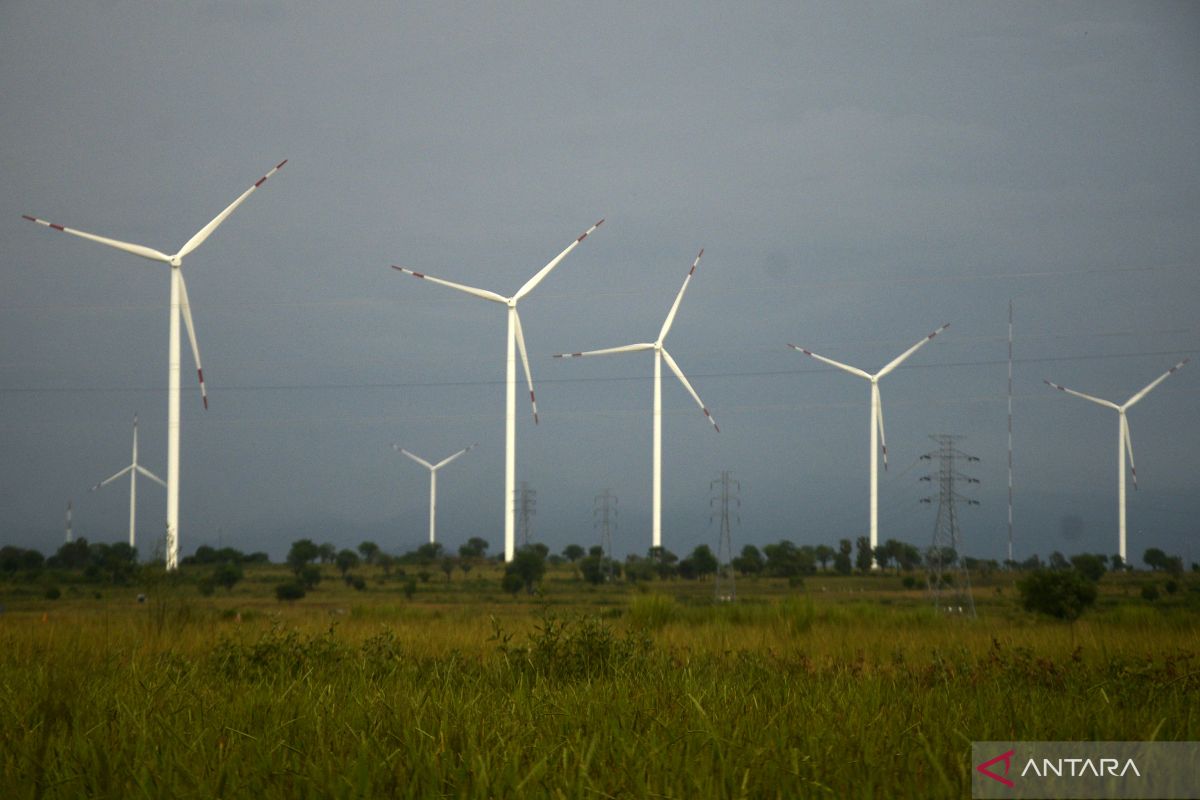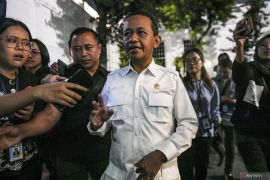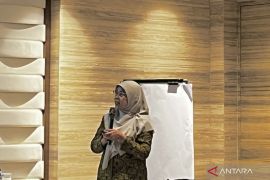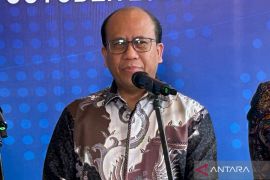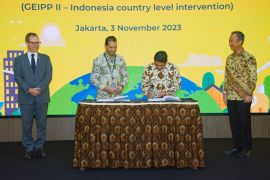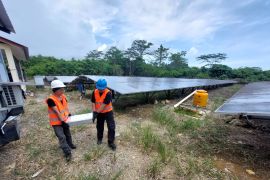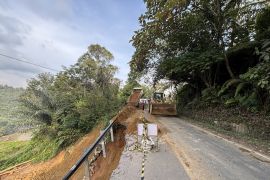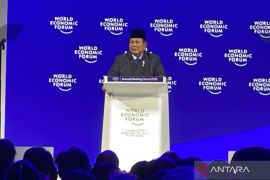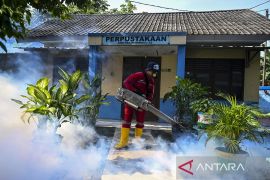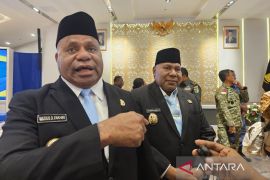Hydrometeorological disasters such as extreme rainfalls, strong winds, floods, droughts, tornadoes and other disasters due to extreme weather have damaged a lot of infrastructures and claimed a lot of lives.
These various disasters are caused not only by ordinary natural events but also by climate change triggered by a rise in the earth's temperature caused by an increase in carbon emissions, among others.
Floods in South Africa which killed around 461 people, and drought in East Africa which led to the death of more than 200 people prove that climate change caused many disasters in the world.
In response to many climate change-induced disasters Secretary General United Nations Antonio Guterres called for climate action to encourage carbon emission reduction.
"Climate change is another issue where good news is hard to find. We are still moving in the wrong direction," he told a year-end news conference at the United Nations headquarters in New York.
He said the global emission gap is getting bigger, and the target of limiting global warming to 1.5 degrees is difficult to achieve, while many national climate plans have failed.
Guterres urged all major emitters to make extra efforts to reduce emissions in line with the 1.5 degree target.
Meanwhile, many countries, including Indonesia, are currently making every effort to transition to clean energy through the development of new and renewable energy to achieve net zero emissions.
Related news: EVs at G20 Summit drive home energy transition agenda
NRE development
In an effort to reduce greenhouse gas emissions and achieve a carbon neutral target by 2060, the Indonesian government has allocated an investment of IDR10 trillion to state-owned electricity company PT Perusahaan Listrik Negara (PLN) , the Environmental Fund Management Agency (BPDLH), and state-owned secondary mortgage company PT Sarana Multigriya Finansial (SMF) for the development of clean energy.
The investment was given in the form of state equity participation (PMN) and disaster pooling fund (PFB) through the signing of a letter of commitment (LoC).
"We hope that the funds originating from the people's money can generate maximum benefits for the society and the economy," said Minister of Finance Sri Mulyani Indrawati in Jakarta, Friday (December 16, 2022).
In detail, PLN received IDR 5 trillion, SMF IDR 2 trillion, and BPDLH IDR3 trillion.
PLN will use IDR5 trillion to improve the capital structure and business capacity in order to increase its funding capability to finance electricity infrastructure development.
In addition, it will use the investment to increase the new and renewable energy (EBT) mix which will result in the reduction of emissions from fossil power plants.
Then, the IDR2 trillion investment for SMF will be used to support the one million houses program, considering that the company has the capacity to maintain the continuity of affordable housing financing for low-income people (MBR) in the future.
Meanwhile, the allocation of IDR 3 trillion to BPDLH in the form of a joint disaster management fund (DBPB) will be used for climate change control, sustainable forest management, forest and land fire control, and peatland restoration.
In addition to the investment, the government also launched the South Sumatra Biomass and Coal Business Partnership pilot project to carry out an energy transition to reduce greenhouse gas emissions.
Deputy for Coordinating Forest and Environmental Management at the Coordinating Ministry for Maritime Affairs and Investment Nani Hendiarti said the biomass exploitation and mangrove rehabilitation cooperation will encourage reductions in the use of coal and increase the use of new and renewable energy (EBT).
"This biomass is included in NRE, and the potential we have is enormous. Our task is to strive for sustainable use, including involving the community," she said.
Meanwhile, the mangrove rehabilitation cooperation is carried out to rehabilitate 600 thousand hectares of mangrove land. Rehabilitation is carried out not only by planting trees but also through conservation
Related news: Pertamina to balance energy transition, security in net zero push
Collaboration
President Director of PT PLN Darmawan Prasodjo said the implementation of the transition to new and renewable energy cannot be carried out by one party, but requires the collaboration of various stakeholders.
Collaboration also needs to be done not only with domestic parties, but also with other countries because the energy transition requires strong investment and commitment.
The collaboration was carried out by the government, including inviting Sweden to develop green energy.
"Indonesia encourages Sweden to cooperate in efforts to reduce emissions through the use of renewable energy, for example through the green hydrogen and green ammonia development projects," Coordinating Minister for Economic Affairs Airlangga Hartarto said on Wednesday (December 14, 2022).
Indonesia has also invited Swedish companies to participate in the development of new capital city of Nusantara which focuses on the concept of a smart city and puts forward aspects of sustainability.
At a broader level, Indonesia and the European Union are also currently discussing cooperation in developing new and renewable energy infrastructure globally as an effort to follow up on the G20 Bali Leaders Declaration agreement.
"The Indonesian government is currently in the preparation stage for implementing the JETP (Just Energy Transition Partnership) agreement with relevant stakeholders, including through the establishment of an internal institutional structure," said Coordinating Minister of Economic Affairs Airlangga Hartarto.
Meanwhile, Deputy for Coordination of Infrastructure and Transportation of the Coordinating Ministry for Maritime Affairs and Investment Rachmat Kaimuddin said Indonesia needs support from other countries, especially related to technology transfer and investment.
In the process of achieving net zero emissions (NZE) in 2060 or earlier, Indonesia has made efforts to transition from fossil energy to electricity in transportation, developed clean new and renewable energy (EBT), and carried out co-firing of biomass in a number of thermal power plants (PLTUs), as well as electrification industry.
All of these efforts are made by the government to realize the commitment to reduce carbon emissions and achieve a carbon neutral target in 2060 so as to create a cleaner and more sustainable community life.
Related news: RI officiates ETM Country Platform to accelerate energy transition
Related news: Indonesia negotiating funding cooperation for energy transition
Editor: Suharto
Copyright © ANTARA 2022
